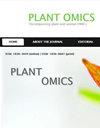代谢组学方法检测植物抗逆性的研究进展
Q3 Agricultural and Biological Sciences
引用次数: 37
摘要
目前,高温和干旱胁迫是影响世界粮食产量的主要风险,限制了产量。这两种胁迫都会影响植物的新陈代谢、生理和形态过程,最终降低生产力。植物细胞发展出不同的应激诱导的自卫机制,以减少应激的影响。这些防御机制是通过改变基因表达模式来发展的,这会导致蛋白质合成的定性和定量偏差,从而导致某些代谢和防御途径的调节。新的代谢谱技术为生物学家了解植物在胁迫条件下的防御机制提供了一个很好的机会。代谢组学技术目前能够使用不同的多变量分析,这些分析是由各种连接和色谱发现系统产生的,例如气相色谱或液相色谱与质谱法或基于核磁共振(NMR)的方法。代谢组学数据的调查和挖掘可以通过不同的统计方法进行,如独立成分分析和方差分析。代谢组学与基因表达、蛋白质相互作用和其他不同的调节途径相结合,可以对具有微小变化的不同生物体有用。近年来,这项技术已被用于研究植物作物的耐旱性,以发现代谢表达中特定的应激相关模式。这些研究确定了与非生物胁迫耐受性相关的初级和次级代谢产物的重要作用。本文章由计算机程序翻译,如有差异,请以英文原文为准。
Advances in detection of stress tolerance in plants through metabolomics approaches
Heat and drought stresses are presently the principal risk on world's food quantity, limiting yield. Both of these two stresses affect plants metabolism, physiological and morphological processes, which ultimately reduces the productivity. The plant cell develops different stress induced self-defence mechanisms to reduce the effect of stresses. These defence mechanisms are developed by modifying gene expression pattern, which results in qualitative and quantitative deviations in proteins synthesis, leading to the modulation of certain metabolic and defensive pathways. New metabolic profiling technologies offer a great opportunity for biologist to understand defence mechanism of plants under stress conditions. Metabolomics technologies presently enabled the using of different multi-variate analyses, generated from various hyphenated and chromatographic discovery systems, such as gas or liquid chromatography together with mass spectrometry, or nuclear magnetic resonance (NMR) based methods. Investigation and mining of metabolomics data can be done through a blend of different statistical methods, such as independent component analysis and analysis of variance. Metabolomics in combination with gene expression, protein interaction and other different regulatory pathways can be useful to diverse organisms with trivial alterations. In recent time, this technology has been used to investigate drought tolerance in plant crops to find particular stress related patterns in metabolic expression. These studies identified the vital roles of primary and secondary metabolites associated with abiotic stress tolerance.
求助全文
通过发布文献求助,成功后即可免费获取论文全文。
去求助
来源期刊

Plant Omics
生物-植物科学
CiteScore
1.30
自引率
0.00%
发文量
0
审稿时长
6 months
期刊介绍:
Plant OMICS is an international, peer-reviewed publication that gathers and disseminates fundamental and applied knowledge in almost all area of molecular plant and animal biology, particularly OMICS-es including:
Coverage extends to the most corners of plant and animal biology, including molecular biology, genetics, functional and non-functional molecular breeding and physiology, developmental biology, and new technologies such as vaccines. This journal also covers the combination of many areas of molecular plant and animal biology. Plant Omics is also exteremely interested in molecular aspects of stress biology in plants and animals, including molecular physiology.
 求助内容:
求助内容: 应助结果提醒方式:
应助结果提醒方式:


